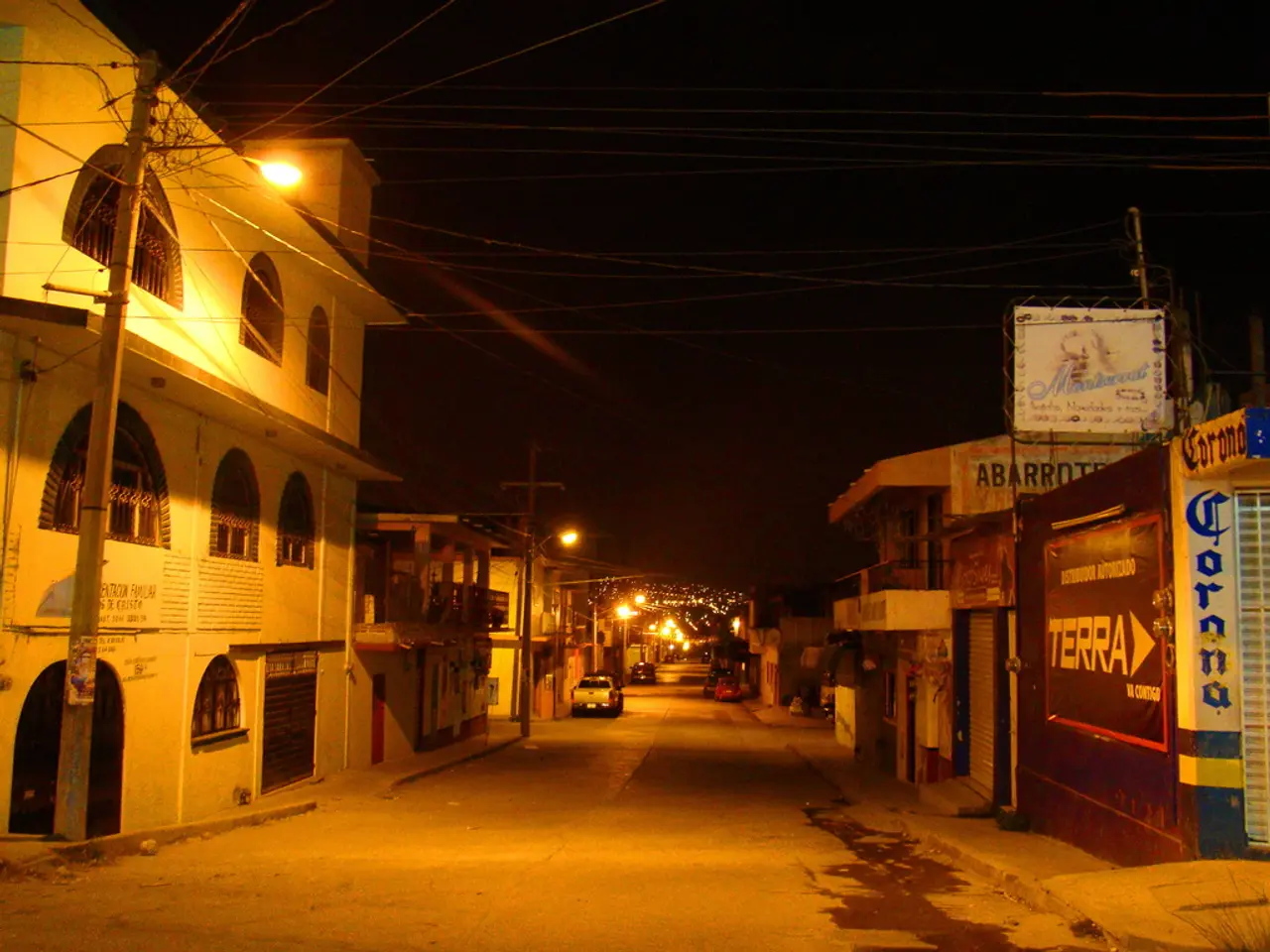Electric Three-Wheelers Introduced by Bolt in Lagos, Nigeria
Bolt, the globally recognised ride-hailing and delivery service provider, is making significant strides in promoting electric vehicles (EVs) across Africa. While specific details for certain countries are not widely reported, here's an overview of Bolt's EV efforts on the continent:
South Africa: Affordable Electric Mobility
In South Africa, Bolt is collaborating with M-KOPA to introduce affordable electric motorcycles for delivery services and compact electric cars for urban ride-hailing. This initiative aims to reduce operational costs for drivers and promote sustainable transportation[1].
Africa-wide Expansion and Investment
Bolt has announced plans to invest €500 million in Africa over the next two years. This investment will help expand its services across the continent, potentially creating opportunities for more EV adoption[2].
Kenya: A Growing EV Hub
While not specifically mentioned in Bolt's EV plans, Kenya is a key market for Bolt and has been enhancing its EV infrastructure. The recent opening of East Africa's first EV battery lab in Nairobi highlights Kenya's growing focus on electric vehicles, which could support Bolt's future EV initiatives[5].
Nigeria, Rwanda, and Uganda: Potential Growth Markets
There are no specific reports on Bolt's EV strategies in these countries. However, the company's expansion plans across Africa suggest potential future growth in these markets.
Lagos, Nigeria: A Testbed for Clean Mobility
Ride-hailing platform Bolt has launched its first fleet of electric tricycles in Lagos, Nigeria. While the exact number of launched electric tricycles remains undisclosed, this move could serve as a testbed for broader EV integration across West Africa[3].
The transport sector in Lagos is a key source of air pollution, making the introduction of cleaner mobility options particularly significant[4]. The battery-powered tricycles are intended to cut pollution, reduce fuel costs for drivers, and provide cleaner mobility options in the city.
The Future of EVs in Africa
Analysts suggest that Lagos, Nigeria could serve as a testbed for broader EV integration across West Africa. The UN predicts that EVs could potentially reduce fuel costs for African drivers by up to 40%, making them an attractive proposition for the continent[6].
As fuel prices in Nigeria have risen since subsidy removals, the cost-saving potential of EVs becomes even more appealing. With Bolt's commitment to low-emission transport and its expanding presence in Africa, the ride-hailing company could position itself as a significant player in Africa's clean mobility future.
Similar EV pilots have launched in East Africa, including Kenya, Rwanda, and Uganda, where startups like Spiro are expanding electric bike fleets with venture capital support[7]. The expansion of Bolt's electric tricycle service to other Nigerian cities may depend on government policy, charging infrastructure, and maintenance networks.
Bolt has already deployed tricycles in Uyo and is building out a regional EV strategy. As the company continues to invest in Africa, we can expect to see more developments in its EV strategy across the continent.
[1] https://www.bolt.eu/news/bolt-partners-with-m-kopa-to-introduce-affordable-electric-motorcycles-in-south-africa [2] https://www.bolt.eu/news/bolt-to-invest-500-million-in-africa-over-the-next-two-years [3] https://www.bolt.eu/news/bolt-launches-first-fleet-of-electric-tricycles-in-lagos-nigeria [4] https://www.worldbank.org/en/news/press-release/2021/06/15/world-bank-group-commits-usd-80-million-to-improve-air-quality-in-lagos-nigeria [5] https://www.reuters.com/business/africa/east-africas-first-ev-battery-lab-opens-in-kenyas-capital-2021-06-09/ [6] https://www.unep.org/resources/report/transport-outlook-2021 [7] https://www.techcrunch.com/2021/06/15/ugandan-startup-spiro-raises-3-2m-to-expand-electric-bike-fleets/
In South Africa and Nigeria, Bolt is introducing affordable electric motorcycles and electric tricycles, respectively, for ride-hailing and delivery services. These initiatives aim to reduce operational costs for drivers and promote sustainable transportation.
With Bolt's investment of €500 million in Africa over the next two years, the adoption of electric vehicles could experience growth across the continent, potentially creating opportunities for cleaner lifestyle options through affordable electric mobility.




